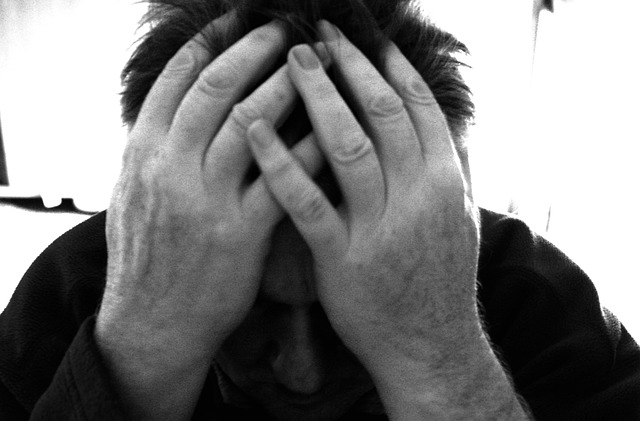Headache is a common pain that many people experience on a regular basis. It can range from mild discomfort to debilitating pain that can greatly affect a person's quality of life. In this article, we will explore the different causes of headaches , their symptoms, and treatment options.
What causes a headache?
Headaches can have many causes, and it is essential to determine the underlying cause in order to find effective treatment. Here are some of the most common causes of headaches:
● tension headache
Tension headaches are the most common type of headache, and they often result from stress, anxiety, or depression. This headache usually feels like a dull, aching ache on both sides of the head, and can last anywhere from 30 minutes to several days.
● Migraine
Migraine is an acute type of headache that is accompanied by nausea, vomiting, and sensitivity to light and sound. They can be caused by a variety of factors, including hormonal changes, stress, certain foods, and changes in weather patterns.
● cluster headache
Cluster headache is a rare type of headache characterized by sharp, piercing pain on one side of the head. They often occur in clusters, which means that a person may have several headache attacks in a row over the course of days or weeks.
● Sinus headache
Sinus headaches are caused by sinusitis, which can be caused by allergies or sinusitis. This headache is usually accompanied by congestion, facial pressure, and a runny nose.
● Headache caused by excessive medication
Taking too many headache medications can increase the frequency and severity of headaches. This is known as medication overuse headache, and it can be difficult to break the cycle of drug dependence.
● other reasons
Other potential causes of headaches include head injuries, eye strain, dehydration, caffeine withdrawal, and sleep apnea.
Headache symptoms:
Headache symptoms can vary depending on the type of headache a person is experiencing. Here are some common symptoms of different types of headaches:
● symptoms of tension headache
1. Dull aching pain on both sides of the head.
2. Pulling or pressure around the forehead, temples, or the back of the head.
3. Sensitivity to light and sound.
4. Pain in the scalp, neck or shoulder muscles.
● Migraine symptoms:
1. Severe and throbbing pain on one side of the head.
2. Vomiting and nausea.
3. Sensitivity to light and sound.
4. Visual disturbances, such as seeing flashing lights or squiggly lines.
5. Tingling or numbness in the face or extremities.
● Symptoms of cluster headache:
1. A sharp, piercing pain on one side of the head.
2. Swelling or drooping of the eyelid on the affected side.
3. Runny or stuffy nose.
4. Anxiety or agitation.
● Symptoms of sinus headache:
1. Pain and pressure in the forehead, cheeks and around the eyes.
2. Runny or stuffy nose.
3. Facial swelling and pain.
4. Fever and fatigue (if caused by sinusitis).
Headache treatment options
Headache treatment options depend on the type of headache and its underlying cause. Here are some common treatment options for different types of headaches:
● Tension headache
Tension headaches can often be treated with over-the-counter pain relievers such as ibuprofen or acetaminophen. In addition, relaxation techniques such as deep breathing exercises or massage therapy can help relieve the muscle tension that causes tension headaches.
● Migraine
Migraines can be more difficult to treat than tension headaches, but there are many effective treatment options. Over-the-counter pain relievers such as aspirin, ibuprofen, or acetaminophen can be effective for mild migraines. For more severe migraines, prescription medications such as triptans, ergotamines, or beta-blockers may be necessary. Botox injections can also be an effective treatment option for chronic migraines.
● cluster headache
Cluster headaches can be very difficult to treat, but there are some effective treatment options available. Prescription medications such as sumatriptan or zolmitriptan can help relieve pain and shorten the duration of a cluster headache. Oxygen therapy, in which the patient inhales pure oxygen through a mask, can also be effective in treating cluster headaches.
● Sinus headache
Sinus headaches are usually caused by an infection or inflammation in the sinuses. Sinus headache treatment options include over-the-counter pain relievers such as acetaminophen or ibuprofen, decongestants to reduce nasal congestion, and nasal corticosteroids to reduce inflammation. Antibiotics may be necessary if your sinus headache is caused by a bacterial infection.
Headache prevention:
Preventing headaches can be difficult, but there are several strategies that can help reduce the frequency and severity of headaches. Here are some tips for preventing headaches:
1. Stress management: Stress is a common trigger for headaches. Learning relaxation techniques such as deep breathing exercises can help reduce stress and prevent headaches.
2. Maintain a healthy lifestyle: Eating a well-balanced diet, getting regular exercise, and getting enough sleep can help prevent headaches.
3. Identify and avoid triggers: Keep a daily headache diary to identify triggers such as certain foods, stress, or lack of sleep, and try to avoid them whenever possible.
4. Stay Hydrated: Dehydration can be a common headache trigger. Make sure to drink plenty of water throughout the day to stay hydrated
Conclusion:
Headache is a common neurological disorder that can debilitate and affect a person's quality of life. Headache treatment options depend on the type of headache and its underlying cause. Over-the-counter pain relievers, prescription medications, and relaxation techniques can be effective treatments for different types of headaches. Preventing headaches can be difficult, but identifying and avoiding triggers, staying hydrated, and maintaining a healthy lifestyle can help reduce the frequency and severity of headaches. If you suffer from chronic headaches, it is important to consult a healthcare professional to determine the underlying cause and develop an effective treatment plan.

Comments
Post a Comment